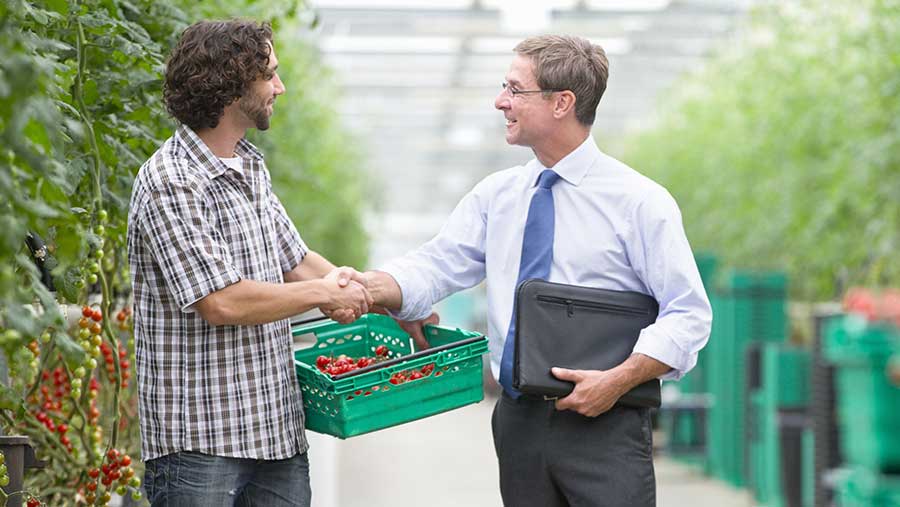Opinion: Negotiate hard, but be fair
 © Juice/REX/Shutterstock
© Juice/REX/Shutterstock Without wishing to sound like Donald Trump, I’m good at negotiating.
At 16, I used to sell flowers from my allotment to the type of Cockney market traders who pronounce “pound” as “paaahhned.” In the world of haggling, that is like training to be a marine.
My CV is equivalent to an Oxbridge education in wheeling and dealing.
Over the years I’ve sold potatoes to Yorkshiremen, done contracting for Israelis and I make my living cutting deals with Dutchmen and supermarkets.
See also: My name is Matthew and I’m an addict
I realised young to make money you must understand the psychology of the people you deal with. I learned this when I bought my first car from a divorcing couple.
“Would you take £500 less?” I asked timidly.
“I’ll take a grand less, quite frankly, rather than give half of it to that useless turd,” she replied.
 Matthew Naylor is the managing director of Naylor Flowers
Matthew Naylor is the managing director of Naylor FlowersDesperate situations
The cheapest prices come from desperate situations; in the early days I bought so much machinery and packaging from bankruptcy sales I was on first-name terms with the local receivers.
Just recently, though, I’ve changed this approach. I stopped driving hard deals because I don’t like being on the receiving end of them. I now crave transparency, fairness and an honest transaction.
Even if I was buying a rug off a street vendor in Marrakech, I would want his best price first time.
When negotiating with our customers, I focus on our virtues, our values and our true costs. I would rather walk away from a deal than be compromised or exploited. Cheap prices rarely deliver the best value for anyone.
This spring we lost a contract with a supermarket when another grower offered a lower price.
That’s business, I’m fine with that. But then guess what? The retailer rang up to ask if they could be involved in our Open Farm Sunday event: their new grower isn’t taking part.
Punishing coffee
Consequently, I have started rewarding good behaviour with a new system in our office. We have bought a swanky bean-to-cup coffee machine.
If a customer tells me that they want to buy my produce for less money (which is always) then I theatrically prepare a delicious cup of rich and fragrant coffee and select a quadruple chocolate biscuit for myself. I then make them a weak, instant coffee with UHT milk and a rich tea.
Ask me to drop my price and I’ll make you into a human cost-saving measure.
A hard part of this transparent approach is understanding what our true costs are.
As farmers, we receive subsidies in our palm, but get ripped off from our back pocket.
Suits you
One of the large chemical companies sends us a pre-paid debit card with money on it if we spend enough with them. I took it to John Lewis and bought a fancy new suit.
Should the suit go in my gross margin as income? This absurd situation is a nice backhander to an employed farm manager, but I’m the business owner. I would rather buy my own bloomin’ suit and not be overcharged for my poisons.
If we want to be proper businesses and not just lifestyle operators, we need to see through the deals and the freebies.
In the brave new world we are entering, farmers need to understand the market for their inputs better and must treat others as they expect to be treated.
